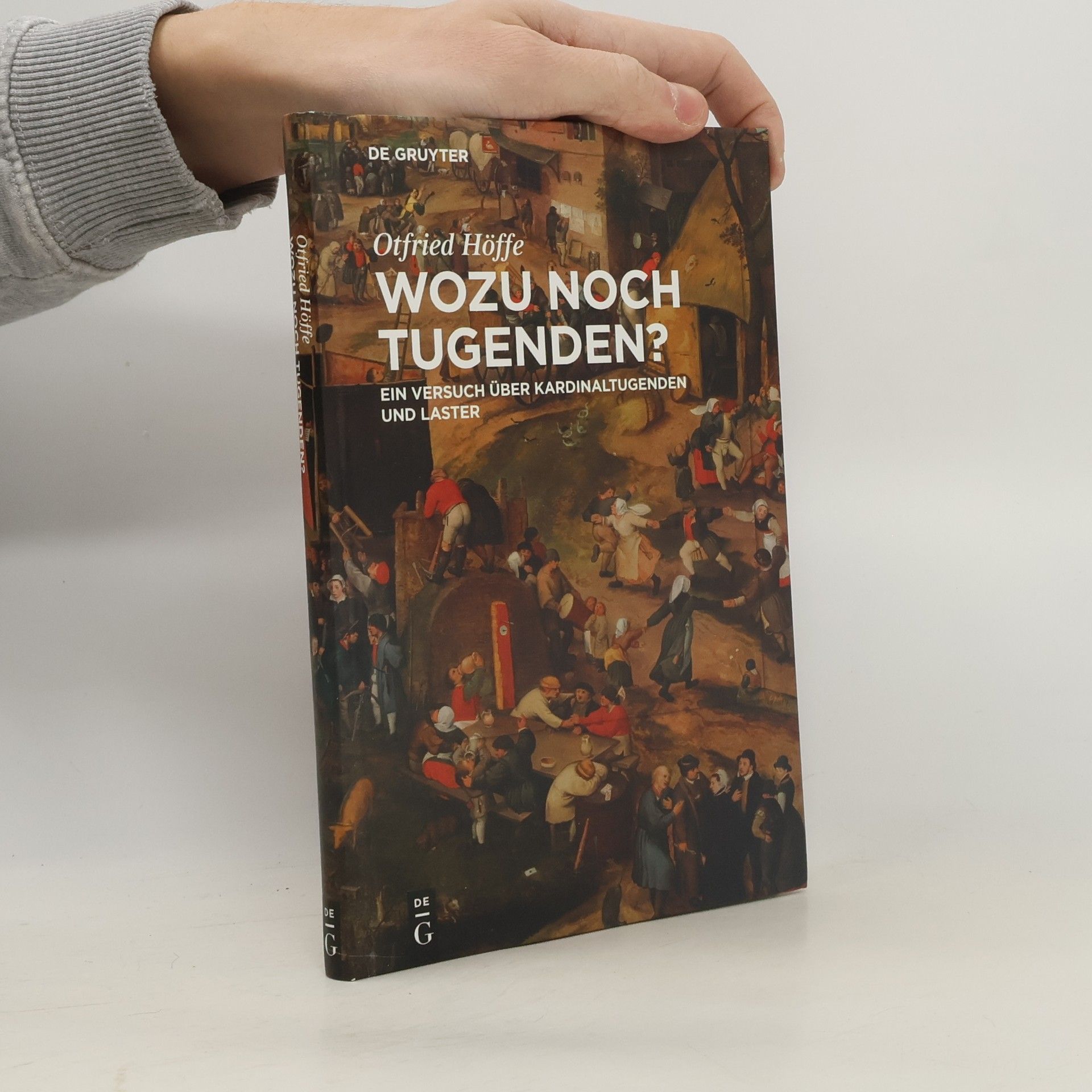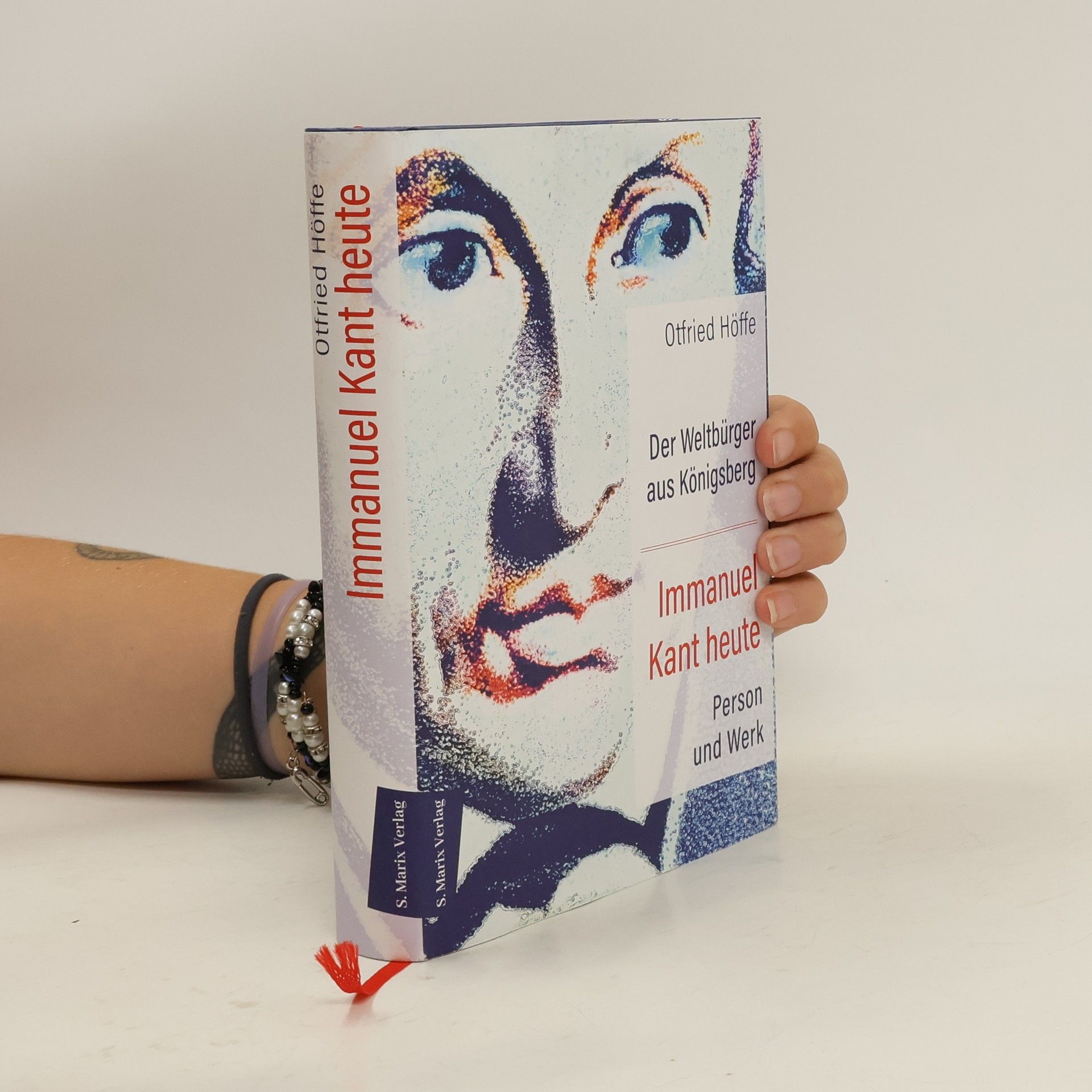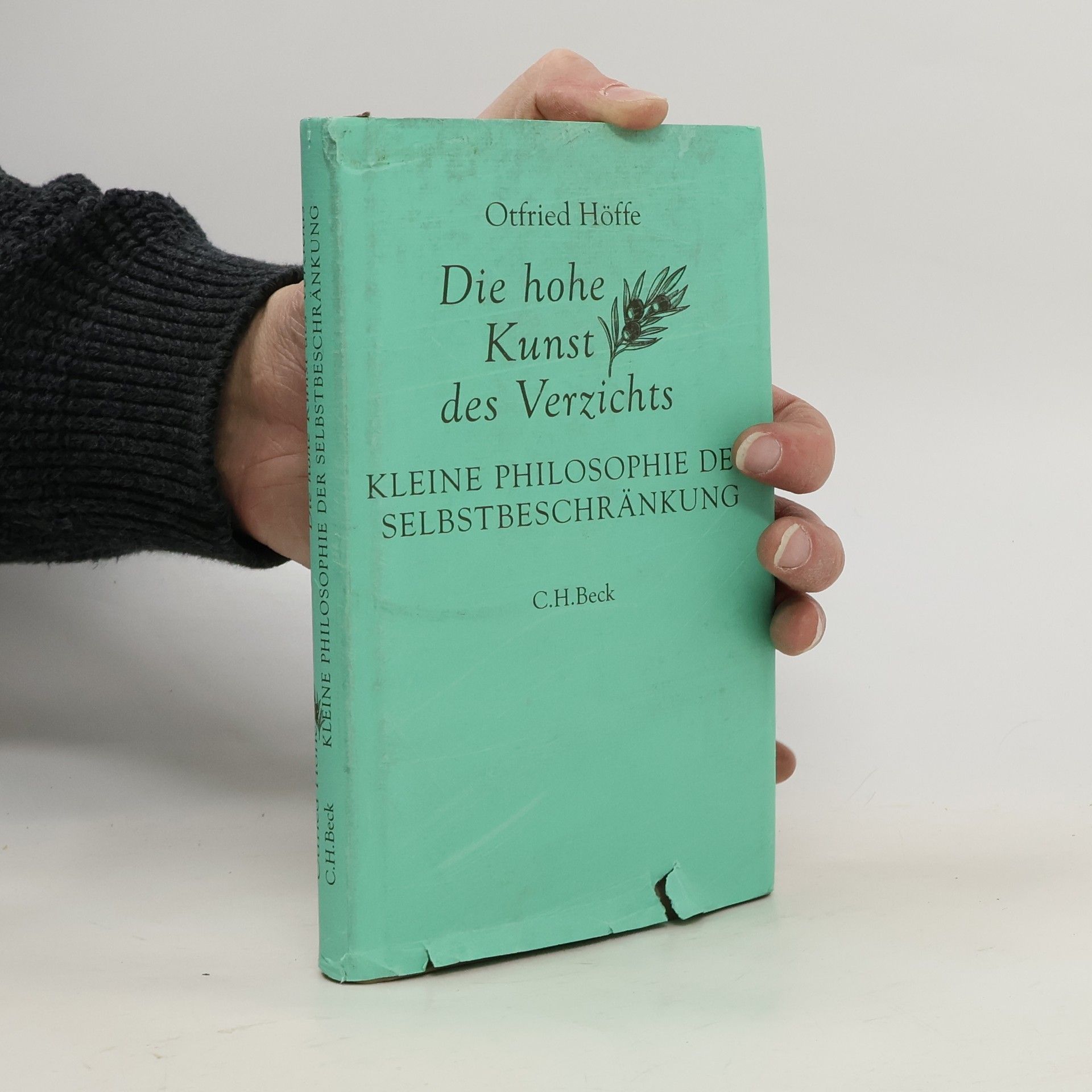In seinem Essay erzählt Otfried Höffe die Geschichte der Tugenden von Plato bis heute und entwirft dabei eine Tugendlehre für das 21. Jahrhundert. Ein Buch, das Mut macht, vor den vielfältigen Krisen unserer Zeit nicht aufzugeben und diese mit Tapferkeit, Besonnenheit und aufklärerischen Vernunft zu begegnen.
Otfried Höffe Book order (chronological)


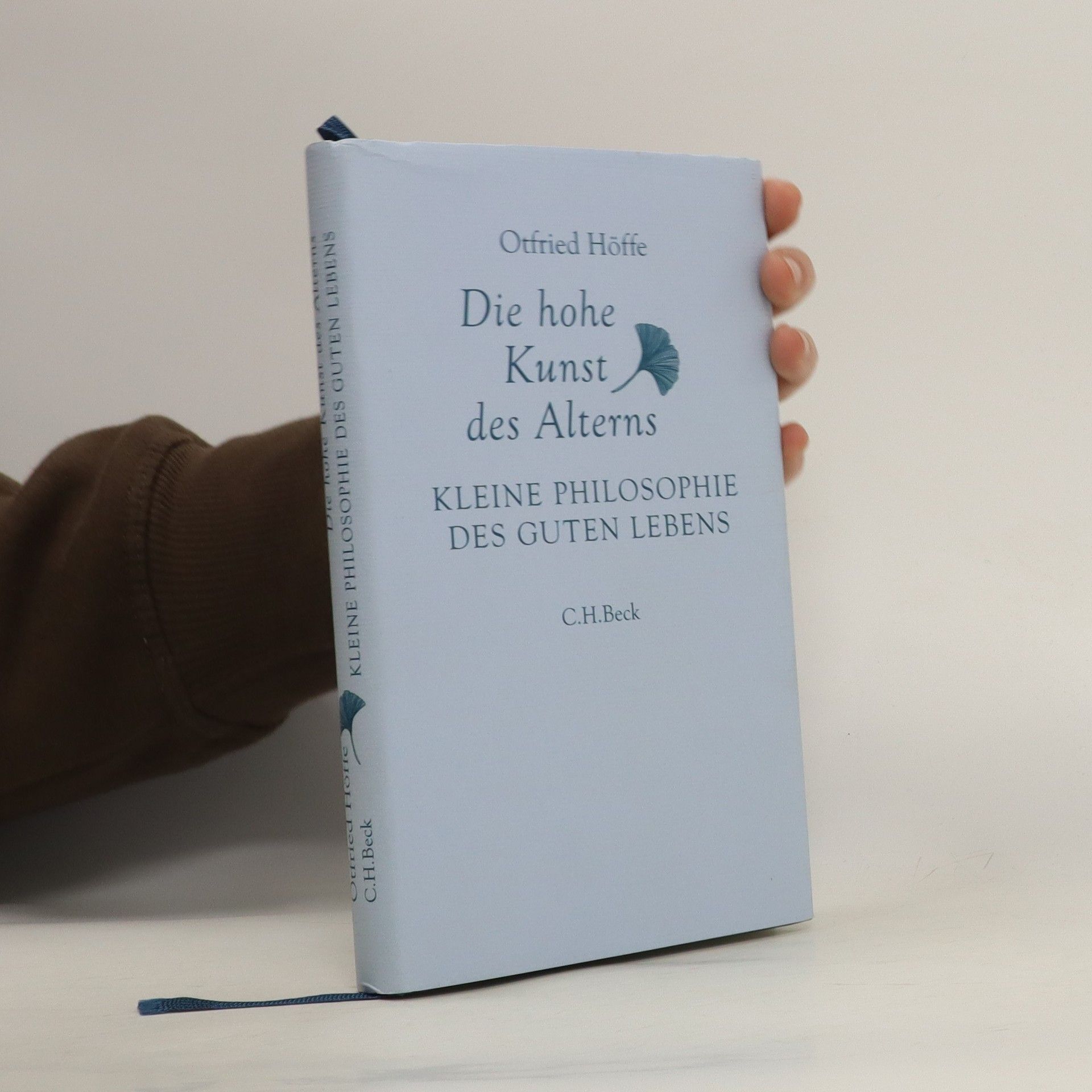

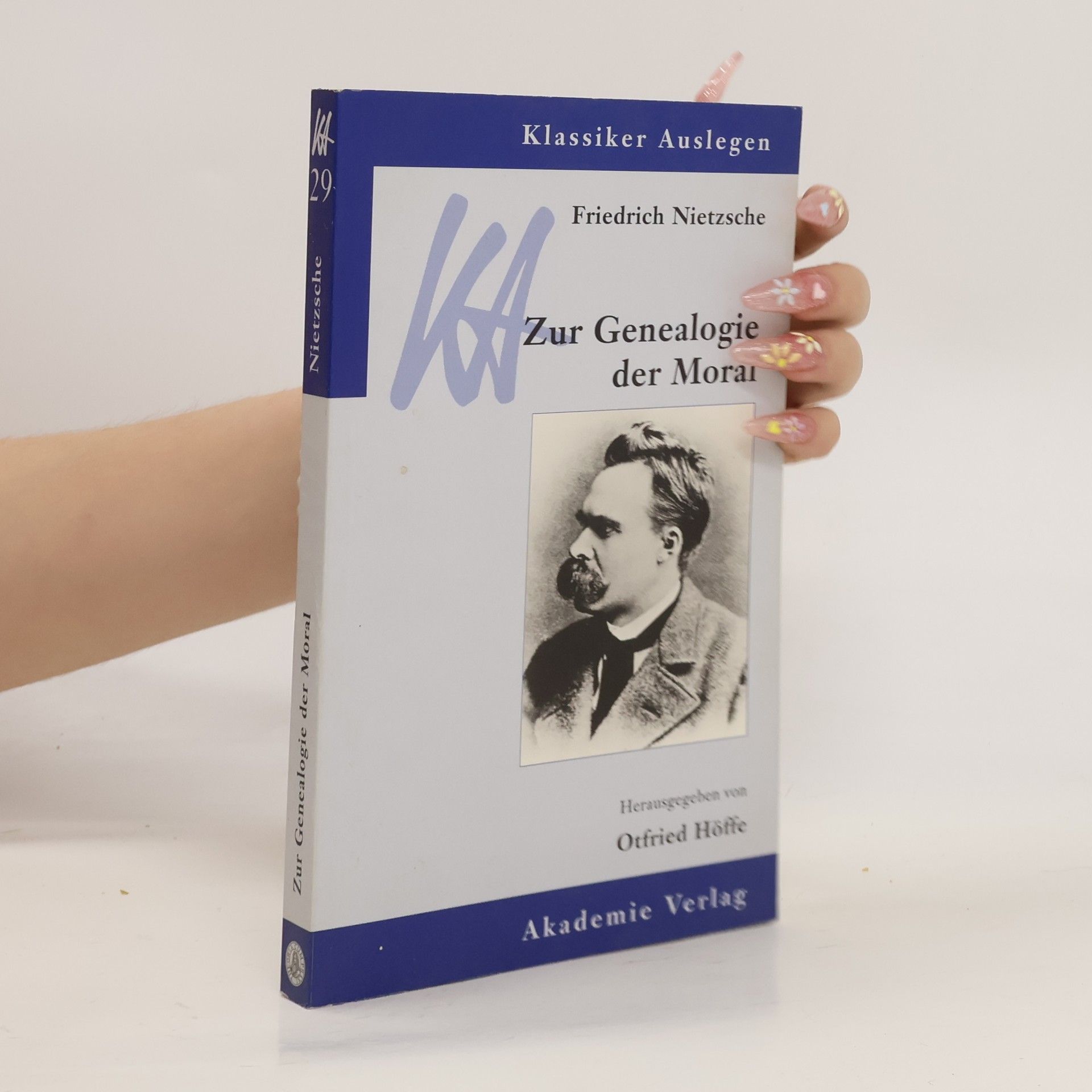
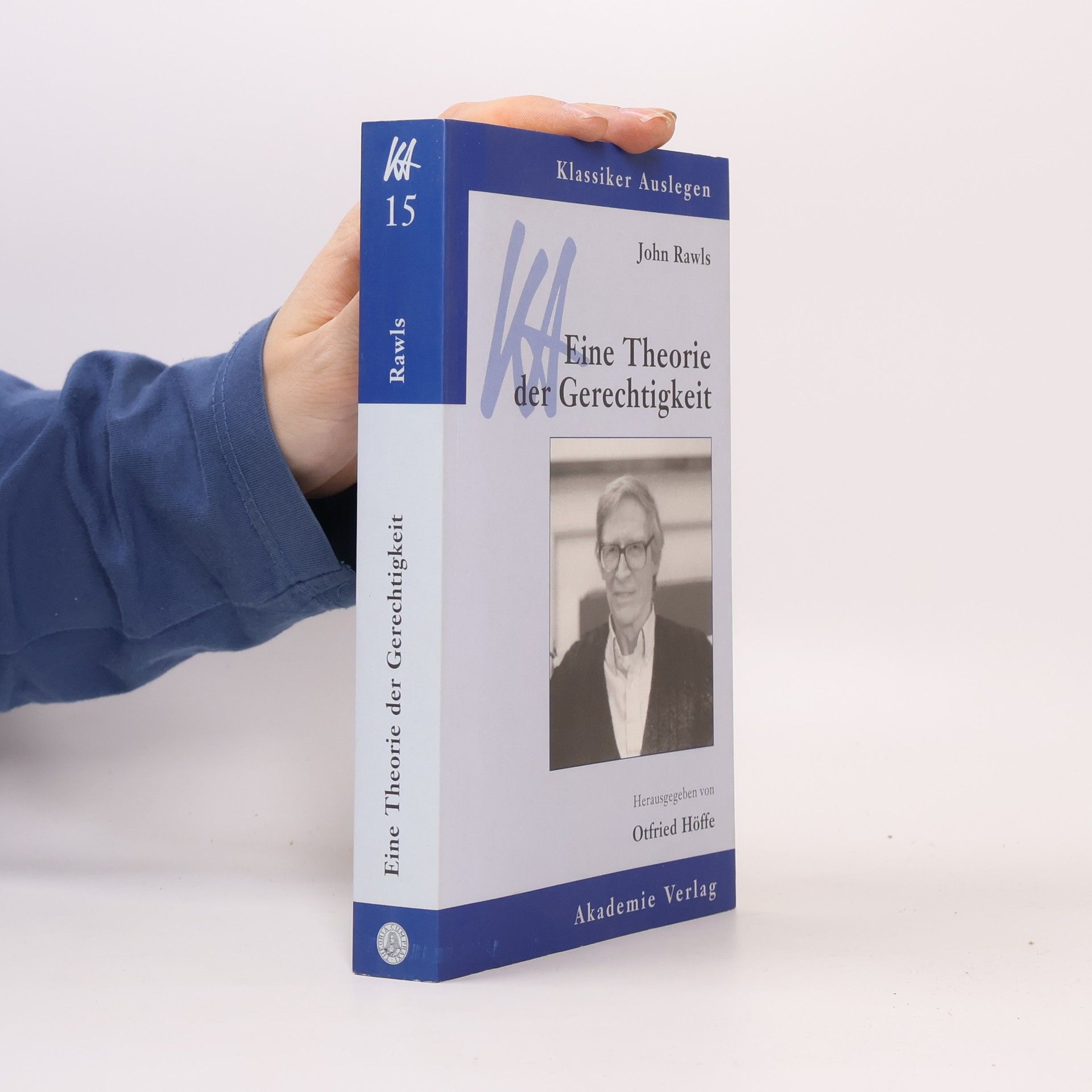
Philosophie trifft Lebenskunst: Otfried Höffe beleuchtet den Schlüssel zum guten Leben. Weisheit, ein Begriff, den wir alle schätzen, spielt jedoch oft eine untergeordnete Rolle in unserem Alltag. Höffe bringt uns die hohe Kunst der Weisheit näher und zeigt, dass sie kein unerreichbares Ideal, sondern ein Maßstab für ein erfülltes Leben ist. Weisheit bietet eine umfassende Daseinsorientierung. In einem Streifzug durch die Geschichte der Philosophie, die Glücksforschung der Psychologie und die außereuropäische Weisheitsliteratur erkundet er ihre verschiedenen Facetten. Ein Schwerpunkt liegt auf Lebensklugheit – der Fähigkeit, das Leben ganzheitlich zu begreifen und sich den existenziellen Fragen zu widmen. Höffe thematisiert auch die stoische Gelassenheit, die es ermöglicht, selbst in widrigen Zeiten die eigene Freiheit zu bewahren. Darüber hinaus befasst er sich mit der Weisheit, die sich im meisterhaften Beherrschen eines Handwerks zeigt. Die Suche nach Weisheit und den Wegen, sie zu erlangen, ist ein universelles Ziel. Höffe ermutigt uns, uns bewusst zu machen, was wir wissen, und das Unbekannte zu akzeptieren – eine zentrale Weisheit, die Konfuzius formulierte. Weisheit im Spiegel der Philosophie: Höffe zeigt, wie wir die Lebensweisheit wiederentdecken können, denn sie ist lernbar.
Immanuel Kants Metaphysische Anfangsgründe der Rechtslehre , 1797 als erster Teil der Metaphysik der Sitten erschienen, stellen einen Beitrag zur neuzeitlichen Rechts- und Staatsphilosophie dar. Hinsichtlich der normativen Prinzipien von Recht und Staat entwickelt Kant eine erfahrungsunabhängige, insofern metaphysische Theorie. Sie beginnt mit einem angeborenen und unveräußerlichen Menschenrecht und geht dann zu den Institutionen des Eigentums und des Rechtsstaates über. Besonders aktuell ist die Formulierung eines rechts- und friedensfunktionalen Völkerrechts und eines Weltbürgerrechts. Darüber hinaus behandelt Kant auch das Ehe und Familienrecht, das Verhältnis von Staat und Kirche und das Straf- und Begnadigungsrecht. Durch den thematischen Reichtum und die begriffliche Genauigkeit, vor allem jedoch durch die Radikalität seiner Fragen und die Originalität der Antworten ist Kants Rechtsdenken bis heute von hohem systematischem Rang. Die elf Beiträger dieses kooperativen Kommentars, der anlässlich des 300. Kant-Jubiläums in einer 3., überarbeiteten Auflage erscheint, nehmen die bleibend gültigen Provokationen der „Metaphysischen Anfangsgründe" ernst. Mit Beiträgen von Hans Friedrich Fulda, Otfried Höffe, Peter König, Kristian Kühl, Bernd Ludwig, Jean-Christophe Merle, Jörg Paul Müller, Terry Pinkard, Alessandro Pinzani, Robert B. Pippin, Allen W. Wood.
Was hat ein Philosoph der Aufklärung uns im 21. Jahrhundert noch zu sagen? Unser Autor hat sich zeit seines Lebens ausführlich mit dem Königsberger Denker, nach dem man die Uhr stellen konnte, wie eine populäre Anekdote lautet, auseinandergesetzt und ist sich sicher: Die Aktualität Kants liegt in seinem Kosmopolitismus. Kant war Weltbürger und überzeugter Demokrat und seine Philosophie, die er mit einer großen Fülle und Tiefe an Argumenten dargelegt hat, wird im Gegenzug auch weltweit anerkannt, da sie kulturübergreifend verständlich und einleuchtend ist, was ihn zu einem der wichtigsten Denker unter allen Philosoph: innen macht. Zu seinem runden Geburtstag sollen diese kantischen Gedanken aus sich selbst heraus zum Leuchten gebracht werden. Für die Lektüre benötigt man keine Vorkenntnisse in Kants Philosophie und er selbst wird ausführlich zitiert. Der umfangreiche und klar gegliederte Text geht auf viele Themen anhand der Hauptwerke ein, denn Kant hat sich mit fast allem befasst. Dabei sind die Fragen, die er aufwirft, auch noch heute radikal und provokant, was auch für viele seiner Antworten zutrifft.
Kants Kritik der praktischen Vernunft (1788) wird oft von der Kritik der reinen Vernunft und der Grundlegung zur Metaphysik der Sitten überschattet. Dennoch sind die Grundelemente seiner Moralphilosophie, im Gegensatz zu vielen Thesen der ersten Kritik, bis heute weitgehend anerkannt. Der Nachweis der zweiten Kritik, dass Freiheit tatsächlich existiert, stellt den „Schlussstein“ eines Systems der reinen, selbst spekulativen Vernunft dar. Kant zeigt in der „Analytik“ anhand von Begriffen wie reiner Wille, gesetzgebende Form der Maxime, transzendentale Freiheit und Autonomie, dass reine Vernunft „für sich“ praktisch sein und den Willen bestimmen kann. Die „Dialektik“ sichert den Ideen von der Existenz Gottes und der Unsterblichkeit der Seele objektive Realität und untersucht das Verhältnis von theoretischer und praktischer Vernunft. Die „Methodenlehre“ skizziert eine Theorie moralischer Erziehung, die für den heutigen Ethikunterricht relevant bleibt. Anlässlich des 300. Jubiläums Kants erscheint dieser kooperative Kommentar in einer 3. überarbeiteten Auflage und rekonstruiert die Argumente eines Schlüsseltextes der Moralphilosophie. Die zwölf Beiträge stammen von namhaften Autoren und prüfen die sachliche Überzeugungskraft der Argumentation.
Die hohe Kunst des Verzichts
Kleine Philosophie der Selbstbeschränkung
Der Verzicht hat in der heutigen Diskussion einen schlechten Ruf, obwohl er in der Ethik und Religion eine bedeutende Rolle spielt. Otfried Höffe nutzt diese Defizite als Anlass für geistesgeschichtliche Rückblicke, um die Vielfalt und Bedeutung von Selbstbeschränkung zu beleuchten. Er betrachtet Verzicht als Mäßigung der Leidenschaften, religiöse Askese und rechtliche Einschränkungen der eigenen Freiheit. Besonders betont er die dringende Verzichtsaufgabe angesichts des Klimawandels und des Artensterbens. Höffes kurze Geschichte des Verzichts zeigt, dass ein erfülltes Leben ohne die Kunst der freiwilligen Selbstbeschränkung nicht möglich ist. Die philosophischen Exkurse sind nicht nur historisch relevant, sondern dienen auch der begrifflichen Klärung und der Entwicklung einer kleinen Philosophie des Verzichts. Er fragt, ob der Begriff rehabilitiert und für das gegenwärtige Denken fruchtbar gemacht werden kann. Höffe führt uns durch fünf zentrale Verzichtparadigmen der Geistesgeschichte und verdeutlicht, dass ein gelungenes Leben Selbstbeschränkung erfordert. Zudem zeigt er, dass Verzicht leicht fällt, wenn er im angemessenen Maß praktiziert wird.
Für ein Europa der Bürger!
Den Europa-Diskurs erneuern
Immanuel Kant: Kritik der Urteilskraft
- 379 pages
- 14 hours of reading
Kant entwickelt in der Kritik der Urteilskraft eine philosophische Ästhetik und eine Theorie der organischen Natur, die durch das Prinzip der reflektierenden Urteilskraft und die Idee der Zweckmäßigkeit verbunden sind. Dieses Prinzip findet Anwendung sowohl bei der Reflexion über die schönen Gegenstände der Natur und der Kunst als auch bei der Erforschung der organischen Natur. Letztlich beziehen sich alle Zwecke auf den Endzweck des Menschen als moralisches Wesen, wodurch die dritte „Kritik“ über Kunst und Natur hinausgeht und Fragen der Moralphilosophie und Moraltheologie berührt. Kant entdeckt im subjektiven Vermögen der Urteilskraft ein Bindeglied zwischen den Naturbegriffen des Verstandes und dem Freiheitsbegriff der Vernunft, was eine Vereinigung der theoretischen und praktischen Philosophie in einem einzigen System ermöglicht. Der vorliegende kooperative Kommentar bietet eine textnahe, fortlaufende Interpretation der „Kritik der Urteilskraft“. Zur 3. Auflage anlässlich des 300. Jubiläums von Kants Geburt wurden alle Beiträge überarbeitet und auf den neuesten Forschungsstand gebracht. Mit Beiträgen von namhaften Autoren wird eine umfassende und aktuelle Auseinandersetzung mit Kants Werk präsentiert.
